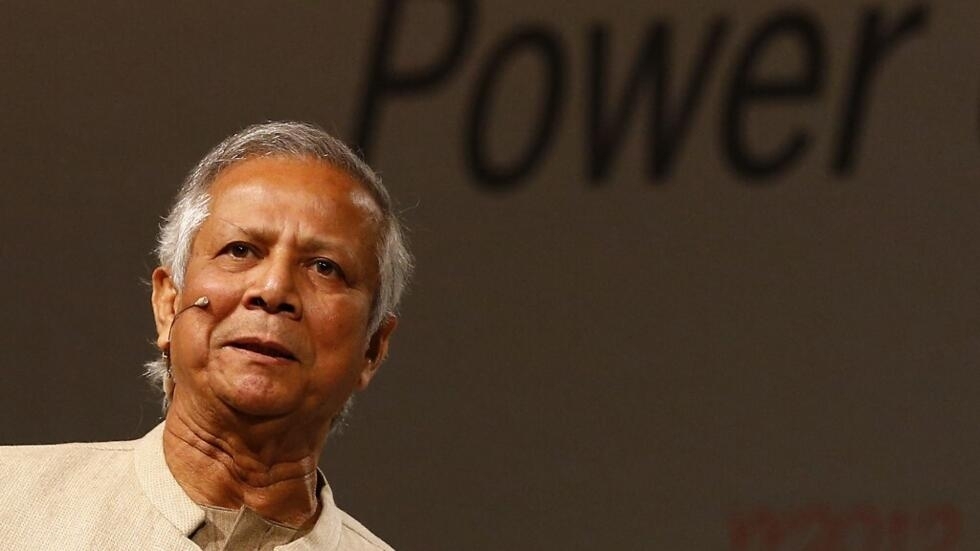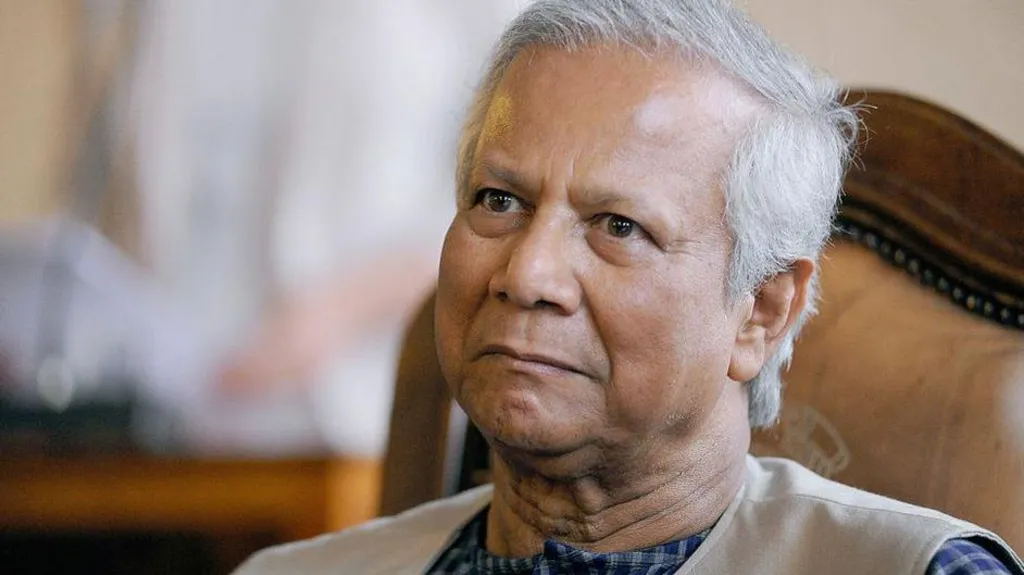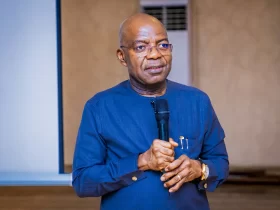Nobel laureate Muhammad Yunus, a long-standing political adversary of Bangladesh’s ousted Prime Minister Sheikh Hasina, has been appointed as the country’s interim leader.
The 84-year-old was named to the position a day after Ms. Hasina fled the country amid weeks of deadly protests that led to her resignation.
Despite being celebrated for his innovative use of microloans, Prof. Yunus has been considered a public enemy by Ms. Hasina.

He is currently out on bail, appealing a six-month jail sentence in a case he claims is politically motivated.
The student leaders who spearheaded the mass protests that toppled Ms. Hasina refused to accept a military-led government and advocated for Prof. Yunus to head the interim administration.
His appointment as chief adviser followed a meeting between President Mohammed Shahabuddin, military leaders, and student representatives.
“When the students who sacrificed so much are requesting me to step in at this difficult juncture, how can I refuse?” Prof. Yunus remarked. He is returning to Dhaka from Paris, where he is undergoing a minor medical procedure, according to his spokesperson.
READ ALSO: Amid Nationwide Protest Bangladesh President Dissolves Parliament
The protests, which began in early July over demands from university students to abolish quotas in civil service jobs, escalated into a broader anti-government movement. Reports indicate that more than 400 people have died in clashes between government forces and protesters, primarily civilians shot by police.
On Monday alone, over 100 people were killed across the country, marking the single deadliest day in the movement. Additionally, hundreds of police stations were torched.
Just hours before protesters stormed and looted the former Prime Minister’s official residence in Dhaka, Ms.
Hasina resigned and fled to neighboring India, abruptly ending her nearly 15-year rule. Despite Bangladesh’s economic growth over the past decade, Ms. Hasina faced increasing criticism for silencing her critics and jailing political opponents.
Several political prisoners, including ex-Prime Minister Khaleda Zia and activist Ahmad Bin Quasem, were released soon after Ms. Hasina’s departure.
Ms. Zia, who leads the main opposition Bangladesh Nationalist Party, had boycotted elections in 2014 and 2024, claiming that free and fair elections were impossible under Ms. Hasina. Imprisoned in 2018 on corruption charges she deemed politically motivated, Ms. Zia was among those freed following the former Prime Minister’s exit.
Rights groups report that Mr. Quasem was detained in 2016, one of hundreds of forced disappearances during Ms. Hasina’s tenure. Prof. Yunus, sentenced to six months in jail in January for labor law violations, has also claimed to be a victim of Ms. Hasina’s vendetta.
He has faced numerous allegations over the years, including tax evasion and serving at Grameen Bank beyond the mandatory retirement age, leading to his dismissal. Prof. Yunus has consistently asserted that these charges were baseless.
In 1983, he founded Grameen Bank, which provides micro, long-term loans to help impoverished individuals start small businesses—a concept that has gained global traction.
Prof. Yunus and Grameen Bank were awarded the Nobel Peace Prize in 2006 in Bangladesh for demonstrating that “even the poorest of the poor can work to bring about their own development.” Internationally known as the “banker to the poor,” Prof. Yunus was labeled a “bloodsucker” of the poor by Ms. Hasina, who accused his bank of charging exorbitant interest rates.
The origins of their feud remain unclear, though many believe it stemmed from his unsuccessful attempts to establish a political party.#Bangladesh
(BBC)
Follow the Parallel Facts channel on WhatsApp: https://whatsapp.com/channel/0029VaCQSAoHgZWiDjR3Kn2E









Leave a Reply